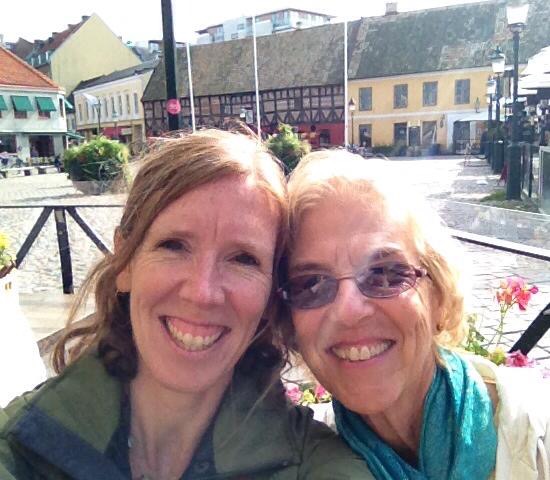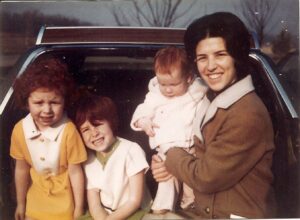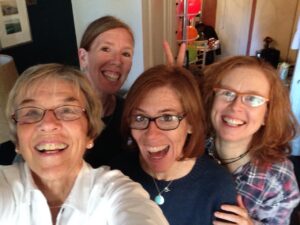April Fools’ Day and May 1st will always be embedded in my head and heart as the two days when the earth shifted beneath my feet. My mom unexpectedly had a stroke on April 1 and then died exactly a month later when she was 73. You may think dying at 73 shouldn’t be shocking, but given that her mom, my “Grammy,” lived until she was 106, my family imagined that same kind of longevity and time with my mom.
Mom didn’t seem to like this idea as much as we did. If we said she would live past 100, Mom always joked, “Oh, please shoot me now!” So, while she didn’t necessarily dream of living into her hundreds, we hadn’t expected her to leave us so soon. She was the youngest, healthiest, and most active sibling in her family — full of life.
When Mom suffered her first stroke, she was only a few years into her retirement. She had been gloriously living her dream, filled with travel, adventure, and quality time with family and dear friends. With her stroke, she literally lost her voice. The stroke left her with aphasia, so she could no longer fully communicate with us. When the second more devastating stroke came three weeks later (while she was rehabbing from the first), my sisters and I were faced with many decisions to make on her behalf.
Although my mom was no longer able to communicate her wishes, she had already given us the incredible gift of sharing with us, many times previously, how she wanted to live her life until the very end. As surreal and devastating as the situation was for us, we came to realize that we knew what it was that we needed to do: to respect Mom’s end-of-life wishes no matter how difficult it may be for us.
Learning from Experience
Experience with caring for both of her own parents and from her career in nursing and pastoral care gave my mom insight into the importance of ensuring her loved ones knew her wishes. Grammy lived to be over 100 and Pop-Pop lived to be 91. Mom, and her sister and brothers, had plenty of planning conversations with their parents over the years to understand what mattered to them, and how they wanted their adult children to handle different scenarios and health issues. Mom knew the importance of a family being on the same page about decisions that come up at the end of life, and especially those that come up unexpectedly.
Mom also worked in pastoral care in hospitals and rehabilitation centers. She worked directly supporting families in their time of need. Mom saw what happened when families disagreed or didn’t know their loved one’s care and treatment wishes.
Seeing the devastation other families experienced when faced with uncertainty or dissent made my mom determined that she would not let that happen to us. In fact, we had to stop her from repeatedly talking with us about her wishes! She would bring it up whenever we saw her, especially when all three of us daughters were together.
Even so, I still question the decisions we made on her behalf. I think back over her last days — going over conversations with the doctors, specialists, nurses, pastoral care and palliative care staff in my head — and I have to reassure myself that we did what my mom would have wanted. I cannot imagine how much doubt and angst I might feel if we hadn’t all been on the same page.
Life is about living and dying well. I thank my mom for not waiting until it was too late to give us the gift of telling us how she wanted to live until the very end. She made it okay to have these conversations anytime, anyplace, and often. My gift to my family will be continuing my mom’s legacy of conversation, sharing what matters most with those who matter most to me.
To begin your conversation with loved ones, download our Conversation Starter Kit.



